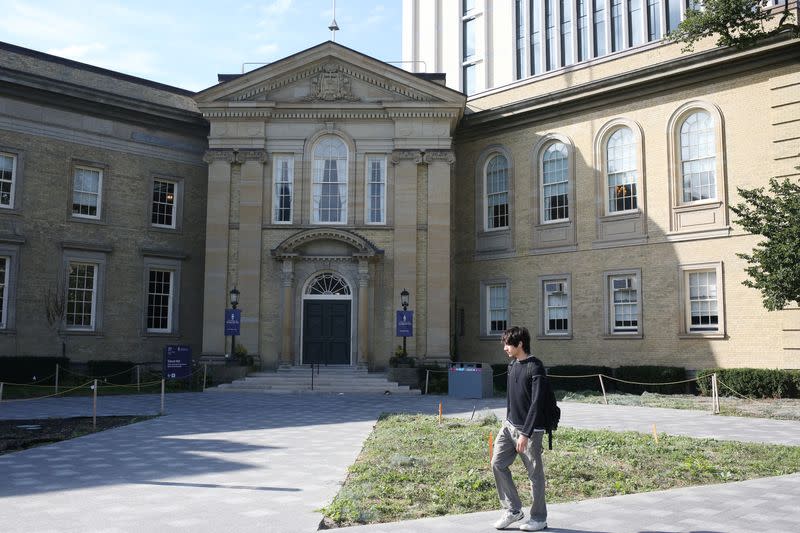Canada's planned curbs on overseas student work may hurt tight job market
By Wa Lone
TORONTO (Reuters) - Canada's planned curbs on work by international students could spark shortages of temporary workers in food services and retail industries as employers are wrestling with a tight labour market and wage inflation in some pockets of the economy.
Last month, Canadian Immigration Minister Marc Miller outlined measures, including slashing the number of allowable work hours, to address bottlenecks created by a surge in international students, who have been blamed for rental shortages.
Canadians are facing increased challenges in securing affordable housing as rents climb nationwide - rising 7.7% in December from a year earlier, according to Statscan.
Canada is planning additional measures to reduce the number of international students coming to Canada, including possibly a cap, and will introduce them during the first half of this year, Miller told Reuters in an interview on Monday.
Canada has emerged as a popular destination for international students since it is relatively easy to obtain work permits after finishing courses. International students are also a cash cow for universities as they bring in about C$22 billion ($16.4 billion) annually, and the government is facing push back from student associations and advocates over its new proposals.
"We need to have international students coming in. It's a key group working in the industry for us," said Maximilien Roy, vice president of the industry lobby group Restaurant Canada, from Quebec Province.
Restaurants across Canada are grappling with labour shortages with nearly 100,000 vacancies, and international students made up 4.6% of 1.1 million workers in the food service industry in 2023, Roy added.
The government plans to limit international students' weekly work hours to 20 from 40 hours starting in April. Miller said the measures are necessary to improve the overall quality of education and the integrity of the immigration system.
"The main purpose of international students to be in Canada is to study," Miller said while proposing the new measures.
Canada's international student intake is expected to touch a record 900,000 for 2023, about three times that of a decade ago, according to government data. That has provided a plentiful supply of temporary workers for employers and helped keep overall costs in check.
FINANCIAL INDEPENDENCE
Reuters spoke to international students, labour experts, restaurant workers and officials from the food and retail industries, who said the disadvantages of the plan outweighed its benefits.
"I came to Canada because I wanted to be independent myself and no one should pay for my tuition fees," said Bhavjeet Singh Kalra, 21, an undergraduate student seeking a public relations degree at Humber College in Ontario, a sentiment shared by many international students.
Kalra worked 40 hours a week during the summer break, which helped him fund his tuition after his parents covered the initial deposit of C$10,000 ($7,420) for the study permit application and the first year's tuition fees.
Many students expressed concern that the new rules will expose them to exploitation, as some will inevitably find themselves working beyond the specified hours without adequate protections.
Pat Chaisang, a former international student from Thailand who founded Isempower, a job-search platform for overseas students, said cutting the working hours will limit students' ability to gain valuable work experience.
"Providing a solid work opportunity that match their area of study to help them transition into the workforce," she said.
A lack of temporary workers also risks pushing up wage growth, which has been a concern for the central bank in its fight against inflation.
Canada's wage growth accelerated to an annual rate of 5.7% in December from 5.0% in November. Employers struggled to fill nearly 700,000 jobs in October last year, according to StatsCan data.
Canadian Alliance of Student Association said barriers rather than work hours should be reduced for international students. In a statement, the group said that would enhance their educational experience, and "will ensure that Canada has the skilled workers we need for a thriving economy."
($1 = 1.3408 Canadian dollars)
(Reporting by Wa Lone; Additional reporting by Steve Scherer in Ottawa; Editing by Denny Thomas and Bill Berkrot)




